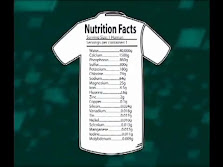SULFUR -
Sulfur is known as a healing mineral. It aids every cell in the elimination of toxic substances. Sulfur is the flexible bond that connects cells and is the lubricant found between joints. A deficiency of water-soluble sulfur can lead to a variety of conditions. It is believed that sulfur can repair the myelin sheath which is the protector on the end of every nerve in the body. Damage to the myelin sheath causes the shaking condition in palsy, MS, lorenzo's disease & many other conditions where motor functions are uncontrollable. Chronic or severe allergies to materials such as dust, pollen, wool, animal hair, feathers, etc. with symptoms ranging from respiratory congestion to inflammation, itching and general discomfort can be relieved with sulfur. It increases blood circulation, reduces back pain, takes care of free radicals, beautifies the skin, relieves allergies to food, controls acidity in stomach ulcers, its important for carbohydrate metabolism and speeds wound healing. Sulfur is stored in the brain, nerves, bowel & liver and in all body cells, especially the skin, hair & nails.Indications of insufficient sulfur may be: arthritis, infection, asthma, migraines, acne, muscle pain, back pain, nerve disorders, constipation, stress, circulatory problems, skin disorders, dry skin, urinary tract disorders, free radical damage, muscle & skeletal disorders, inflammation & wrinkles.
TIN -
Tin is concentrated primarily in the adrenal glands, but is also found in the liver, brain, spleen & thyroid. It's found in the tissue and has many chemical and physical properties similar to those of carbon, silica, germanium & lead. Tin has been implicated in hair loss & hearing loss. Little is still known about the functions for tin in humans.
Indications of insufficient tin may be: hair loss, male pattern baldness & unexplained hearing loss.
VANADIUM -
Vanadium regulates the circulatory system, helps reduce cholesterol levels & buildup in the central nervous system, lowers elevated blood sugar & is believed to help reduce the incidence of heart attack. When used in combination with chromium it is found to be very beneficial in dealing with those mineral deficiencies found in diabetics and hypoglycemics.
Indications of insufficient vanadium may be: cardiovascular disease, infertility, diabetes, metabolic dysfunction, high cholesterol, obesity, hyperinsulinism, pancreatic dysfunction & hypoglycemia.
ZINC -
Zinc deficiency is common due to depletion of our soil & losses associated with food processing. Zinc aids in: the proper assimilation of vitamins, normal growth & development, maintenance of body tissues, sexual function, immune system, chemical detoxification, synthesis of DNA & helps reduce healing time both before & after surgery. It is an anti-oxidant and must be in proper balance to assist some 25 enzymes in various functions involving digestion, metabolism & reproduction. In the 1800's surgeons used zinc as an antiseptic/antibiotic after surgery & it was noted for its healing properties. Lack of zinc in pregnant women can result in numerous birth defects such as: down's syndrome, cleft lip, spina bifida, clubbed limbs, hiatal hernia & umbilical hernias. Zinc is anti-bacterial, anti-viral & is found in all the body fluids, including the moisture in the eyes, lungs, nose, urine & saliva. Because zinc moves through all the fluids in the body, it creates a defense against infection-causing bacteria and viruses trying to enter the body & stops bacterial and viral replication. Zinc is stored in the thyroid, pancreas, liver, kidneys, bones, voluntary muscles, prostate, sperm, skin, hair, nails, white blood corpuscles & parts of the eyes.
Indications of insufficient zinc may be: angina, herpes, alzheimer's, hypertension, anemia, hair loss, anthrax, infertility, alcoholism, infection, acne, anorexia & bulimia, loss of smell and taste, body odor, miscarriages, birth defects, obesity, cavities, pms, crohn's, still births, libido issues, depression, thyroid disorders, diabetes, urinary tract, infections, eye disease & free radical damage.
















